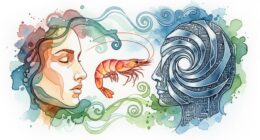A viral phenomenon describing vacant expressions among younger workers has become a symbol of mounting concerns about excessive screen time damaging cognitive development.
The Wall Street Journal reports that the “Gen Z Stare” gained widespread recognition on TikTok this summer, referring to the glazed look displayed by young people when they struggle to connect with older colleagues and customers.
“The most common meaning is a vacant expression a Gen Zer gives in response to a question,” a NBC report explained. “The stare occurs in classrooms, restaurants, at work and more settings.”
Psychologists link this behavioural pattern to excessive digital consumption impairing social skill development, with pandemic lockdowns exacerbating the problem. The phenomenon coincides with new technology potentially worsening digital disconnection, including Meta CEO Mark Zuckerberg’s recently launched Ray-Ban smart glasses that enable social media browsing through discrete hand movements.
Research validates growing concerns about screen time’s neurological impact. A 2022 systematic review analysing 87 studies established connections between increased digital consumption and higher rates of aggression, inattention, anxiety, depression and behavioural problems among young people.
Chinese scientists published complementary findings showing “smaller brain volume in excessive smartphone users,” with results correlating to impulsive behaviour patterns. Brain imaging demonstrated physical alterations in regions governing impulse control.
Gaming studies reveal mixed outcomes. A 2021 meta-analysis recognised educational benefits from certain games whilst cautioning that heavy usage could “lead to addiction and impair ability to focus on effortful goal oriented behavior.”
Statistical data illustrates the scope of youth digital engagement. Pew Research Center findings show 97% of teenage boys participate in gaming, with 61% playing daily. Sports participation reaches approximately 60% among the same demographic.
Cambridge University’s 2023 research suggests traditional activities provide irreplaceable cognitive benefits. Adolescents who read more during childhood demonstrated fewer mental health difficulties and superior cognitive test performance, with brain imaging revealing enlarged regions responsible for information processing.
These findings correspond with declining standardised test scores over the past decade as digital activity among students has intensified.











